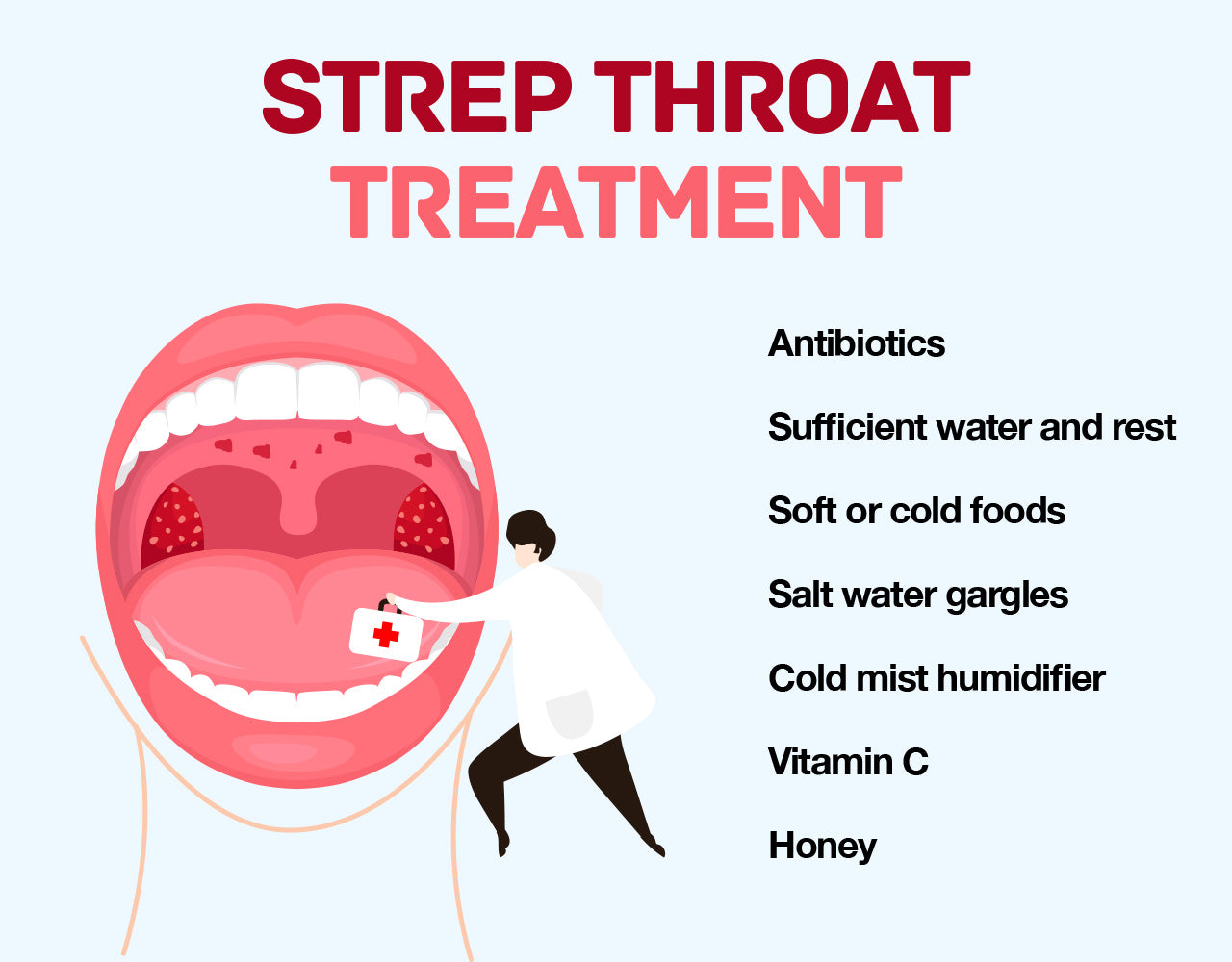Is Your Sore Throat Strep? Identifying Symptoms and Treating the Infection
 By: by Amino Science
By: by Amino Science

You know the feeling: that telltale tickle in the back of your throat that turns into a scratchy sensation and finally a raw pain that keeps you up at night. Well, the good news is that not all sore throats are cause for concern. Many are simply the result of allergies, the common cold, environmental irritants, or viral infections. However, sometimes a sore throat may be the result of a more serious illness known as strep throat. So if you’re wondering, "Is my sore throat strep?" read on to discover the common symptoms of strep throat and what you can do to treat the infection and ease your pain and discomfort.

What Causes Strep Throat?
Streptococcal pharyngitis, commonly known as strep throat, is an infection of the throat and tonsils caused by a specific type of bacteria called Streptococcus pyogenes—also known as group A Streptococcus, or group A strep.
These highly contagious strep bacteria live in the nose and throat, but not everyone who carries them may show symptoms of illness. Even so, if an infected person coughs or sneezes, the bacteria carried in the resulting water droplets can easily be spread to another person. Likewise, the bacteria can be spread by eating or drinking after an infected person or by touching their personal items and then touching the nose, mouth, or eyes.
Risk Factors for Strep Throat
Anyone can get strep throat, but some groups are more prone to the infection than others. For one thing, this throat infection is far more common in children than adults, with most cases affecting children aged 5 to 15. In addition, most adults who contract the illness are either parents of young children or otherwise in close contact with them, such as elementary school teachers and day care workers.
Complications of Strep Throat
Although strep throat isn’t generally dangerous, it can lead to serious complications, including:
- Sinus, blood, or ear infection
- Scarlet fever
- Rheumatic fever
- Reactive arthritis
Is Your Sore Throat Strep?
If you’re wondering whether you have an ordinary sore throat or strep throat, you should know that the two share a few similarities, like throat pain and swollen lymph nodes in the neck, but the symptoms of strep throat are more severe and aren’t accompanied by common cold symptoms. For instance, the symptoms common to a basic sore throat include:
- Scratchy throat
- Runny nose
- Cough
- Hoarseness
- Congestion
By contrast, common strep throat symptoms may include:
- Tiny red spots at the back of the throat, on the roof of the mouth
- Red and swollen tonsils
- Tonsils with white patches and streaks of pus
- Throat pain that begins quickly
- Difficulty swallowing
- Headache
- Body aches
How Is a Strep Infection Diagnosed?
If you or your child is experiencing symptoms you think may be due to strep, you should see your health care provider. After speaking with you about your symptoms and performing a physical exam, one or both of the following tests will probably be performed.
- Rapid strep test: This test involves swabbing the back of the throat and then testing the swab for antigens to the strep bacteria. While results return in minutes, the test can sometimes come back with false-negative findings. If this occurs, and your health care provider still suspects strep, a throat culture will be performed.
- Throat culture: This test also uses a cotton swab to swab the back of the throat, but the sample is then cultured in a lab to check for the presence of bacteria. A throat culture is more specific than a rapid strep test, but it can take 1 or 2 days to get the results.
Strep Throat Treatment
If strep throat is found to be the cause of you or your child’s sore throat, you’ll most likely be prescribed antibiotics. If taken within 48 hours of illness onset, antibiotics can reduce the duration and severity of symptoms and prevent the bacteria from causing complications and spreading to others.
After receiving your prescription, it may take a while to start feeling better, but after 24 hours on antibiotics and no more signs of fever, it’s safe for you or your child to return to work or school. However, you should still be sure to take the full course of antibiotics so no strep bacteria remain in your system, which could lead to serious complications or recurrent infections.
Home Treatment
Anyone who’s had strep throat knows it can be a painful experience, and antibiotic treatment doesn’t work overnight, so you may also want to consider some home remedies for strep throat to help you start feeling better faster. For example, over-the-counter pain relievers such as acetaminophen (Tylenol) and nonsteroidal anti-inflammatories like Advil can help reduce both throat pain and fever.
Additional home remedies that can provide symptom relief include:
- Plenty of rest: Your body can’t heal without plenty of rest, so be sure to take it easy until your fever has broken and you’re feeling better.
- Water: Drinking plenty of water can help keep your throat lubricated and prevent dehydration.
- Soft or cold foods: Soft foods like applesauce and mashed potatoes are easy to swallow, and cold foods like sherbet can help numb a sore throat. You might also try eating both anti-inflammatory foods and foods high in amino acids, which have been shown to help mitigate the inflammatory response.
- Salt water gargles: The use of a salt water gargle several times a day can help relieve throat pain. Moreover, along with breaking up mucus and reducing swelling, warm salt water creates an inhospitable environment for irritants and bacteria. For best results, simply dissolve 1/4 to 1/2 teaspoon of salt in 8 ounces of warm water, gargle, and then spit.
- Humidifiers: The use of a cool mist humidifier can help keep your mouth and throat moist by adding much needed moisture to the air. This may be especially helpful during the dry winter season but can also be beneficial when suffering from allergies or a cold or flu.
- Vitamin C: If you aren’t getting enough vitamin C in your food or just want to give your body a helpful burst of germ-fighting power, take a vitamin C supplement. In fact, a recent review indicated that vitamin C can help prevent, shorten, and alleviate a number of different infections.
- Honey: You may not be aware that honey contains an impressive 26 amino acids, many of which are known to boost immunity and fight bacteria like the ones that cause strep throat. If you want to take advantage of this natural treat, mix 3 tablespoons of raw, organic honey with 3 slightly crushed garlic cloves and 1/8 teaspoon of cayenne pepper. For best results, avoid eating or drinking for 20 minutes after consuming this sore throat–fighting solution.
- Essential amino acids: Nutritional support from an essential amino acid supplement can help shore up any nutrient deficiencies that occur with illness. Heal was designed to help you recover from illnesses such as strep throat faster.
With appropriate treatment, people suffering from strep throat should start feeling better within a day or two. However, if you experience no improvement after 48 hours or your symptoms begin to worsen, don’t hesitate to speak with your health care provider right away.


Up to 25% off Amino
Shop NowTAGS: conditions
Join the Community
Comments (0)
Most Craveable Recipes




 833-264-6620
833-264-6620



















